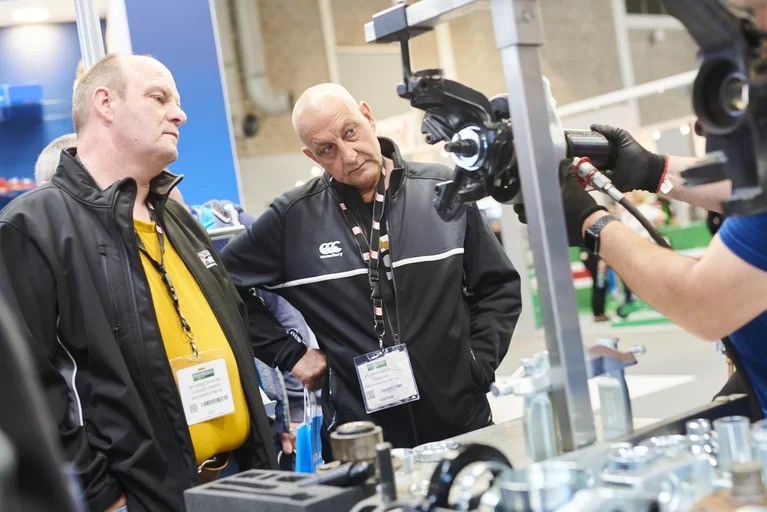For once the taxman is listening to your ideas on how to make tax transparent, writes Adam Bernstein.

VAT is a tax that, from the government’s point of view, is very successful. It raised some £117bn last year – 22% of government revenues. And it’s cheap to collect – the VAT-registered trader does most of the work and HMRC just polices it.
But despite HMRC’s efforts, there are some that take advantage of the system for fraudulent purposes. Take the August 2016 case of Ian John Coleman whose Top Gear Transmissions Ltd charged VAT to customers but then pocketed £300,000 of that money. He was jailed for 32 months. He denied any wrongdoing, but offered no explanation for failing to submit accurate VAT returns, saying that he was “no accountant”.
The problem is that VAT is an admin burden, complex and even with help from accounting systems, creates lots of worries and builds in fraud risk. Could it all be simpler? Could that burden be reduced while protecting government revenue? The government is thinking VAT can be simplified and through a review being undertaken by an independent department, you have a chance to contribute.
BACKGROUND
As Paul Morton, Tax Director at the Office of Tax Simplification (OTS), the department running the review, points out, the UK when it joined the Common Market in 1973. With the UK planning to leave the EU, VAT is going to be affected by Brexit.
VAT’S ENOUGH
Those old enough may remember that when VAT was coming in, the then Chancellor, Anthony Barber MP, declared that “VAT will be a simple tax”. But it’s not and lots of areas cause difficulties for the trader, often in deciding whether to charge VAT on something or not.”
The OTS has identified eight areas that are particularly complex and so offer scope for simplification. They are discussed in Progress report and call for evidence it published on its website. Four are particularly interesting to the OTS:
The VAT registration threshold:
This is when a business has to sign up for VAT and start charging it. Morton points out that the UK’s level is £83,000; most others countries are around £20,000: “This can encourage traders to stay below the current £83,000 annual level. We’re told that distorts competition with someone who can stay below the VAT limit gaining a price advantage compared with the VAT-registered trader.”
Morton poses questions – would it be better to raise the UK’s registration level further, which would cut out more businesses, but costs the government money? Or should it be lowered – perhaps to the £20,000 average? But as Morton points out – “that would level the playing field somewhat but means more small businesses have to deal with it – how would they cope?”
Rates of VAT:
Changing tax rates is outside the OTS’s remit but what it’s interested in are boundary issues that cause problems in practice. Where is it difficult to decide what rate to apply? Is that down to product development where VAT hasn’t kept up?
There are of course some famous examples here says Morton. “Some may recall the case over whether a Jaffa Cake was a chocolate-covered biscuit (that would be subject to VAT) or a cake (zero-rated and so it carried no VAT). In the end, the case was decided by a VAT tribunal as it being a cake – they start soft and go hard with age whereas biscuits are the reverse.”
Partial exemption:
Morton says this is a more technical issue, but it’s not the obscure area it once was. The idea is that a trader claims back VAT they have paid on goods and services purchased. The catch is that the purchases have to be linked to supplies they make that are subject to VAT, at the 20%, 5% or 0% rate. If the purchase links to a supply that is exempt or just isn’t a supply at all (that can affect charities) then the VAT can’t be reclaimed.
Morton says “these circumstances are ‘partial exemption’ and seem to catch far more businesses than it used to. A classic example: the farmer who now rents out surplus buildings.”
Special accounting schemes:
There are a range of schemes which were designed to simplify VAT accounting. Morton lists as including flat rate schemes, annual accounting, and retail schemes. The OTS wants to know if they are still working properly and Morton asks: “Do they still simplify – do they need amending? Are some no longer needed?”
There are other areas listed in its report that the OTS will be examining – VAT administration, penalties and appeals; Capital Goods scheme; Option to Tax; a rulings system; and whether particular business sectors need to be taken into account. “But as well as what we have set out, people will no doubt have their own issues that cause complexity.”
|
THE OTS NEEDS YOUR HELP |
|
The OTS gathers evidence from those who deal with the tax system – businesses, advisers – anyone with an interest. “We’ll do some of our own analysis,” says Morton, “but we need people – especially small businesses – to tell us what causes difficulties in practice and so what would make life simpler.” Email ots@ots.gsi.gov.uk if you have any ideas. |










Go to comments